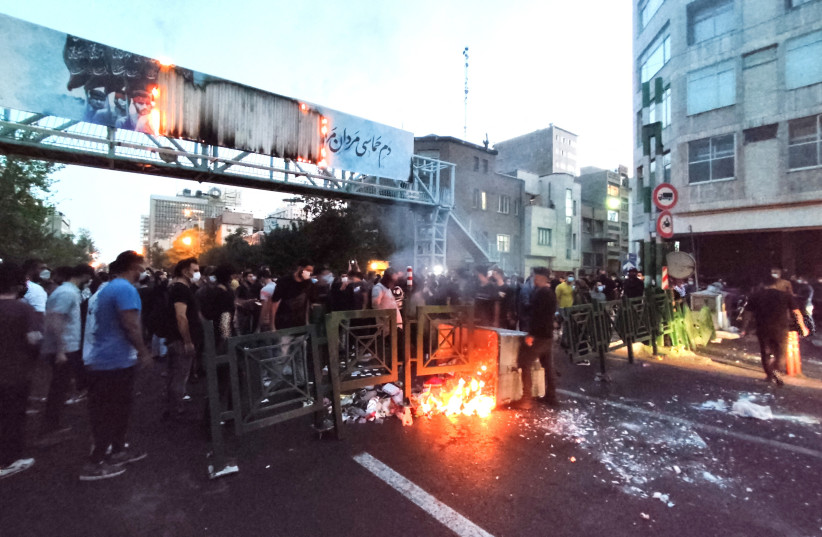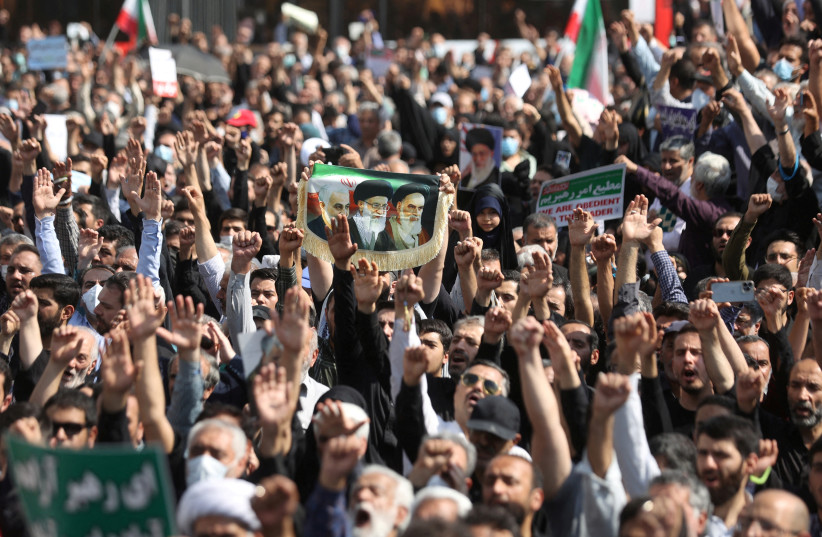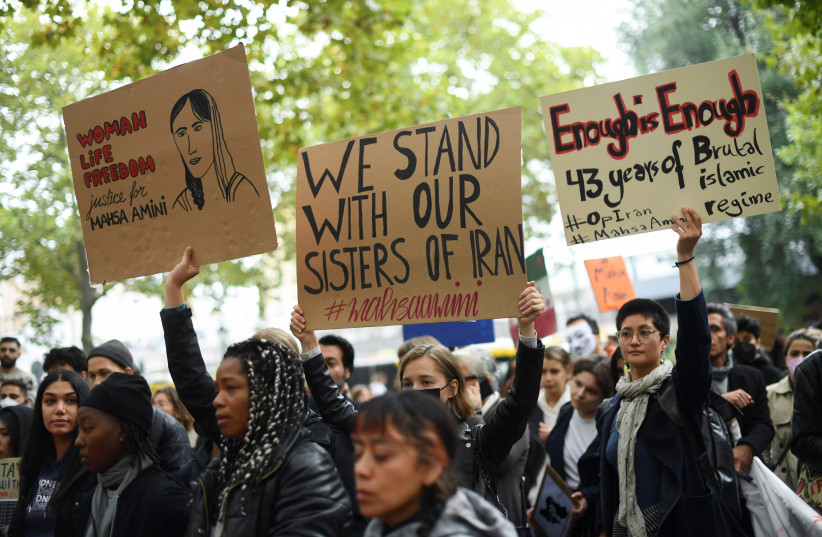Protests in Iran entered their seventh day on Sunday as people continued to take to the streets, burning pictures of Supreme Leader Ali Khamenei and calling for the downfall of the Islamic regime.
At least 41 people have been killed in the week-long unrest. Protests have erupted in most of the country's 31 provinces.
On the night of Sept. 21, shootings by security forces left at least 19 people dead, including three children, it said.
The protests are the largest to sweep the country since demonstrations over fuel prices in 2019, when Reuters reported 1,500 people were killed in a crackdown on protesters - the bloodiest confrontation in the Islamic Republic's history.

Why are there protests?
The protests broke out after the death in custody of a woman detained by the Islamic Republic's morality police.
Mahsa Amini, a 22-year-old Kurdish woman, died after falling into a coma following her detention in Tehran by morality police enforcing hijab rules on women's dress.
Her death has reignited anger over issues including restrictions on personal freedoms in Iran, the strict dress codes for women, and an economy reeling from sanctions.
Women have played a prominent role in the protests, waving and burning their veils. Some have publicly cut their hair as furious crowds called for the fall of Supreme Leader Ayatollah Ali Khamenei.

Responses in Iran
State media quoted Iranian President Ebrahim Raisi on Saturday as saying Iran must "deal decisively with those who oppose the country's security and tranquility."
Raisi was speaking by telephone to the family of a member of the Basij volunteer force killed while taking part in the crackdown on unrest in the northeastern city of Mashhad.
The president "stressed the necessity to distinguish between protest and disturbing public order and security, and called the events ... a riot," state media reported.
At least three times this week, mobile Internet has been disrupted in Iran, the NetBlocks watchdog has reported. Activists say the move is intended to prevent video footage of the violence reaching the world.
On Saturday NetBlocks said Microsoft's MSFT.O Skype video calling app was now restricted, the latest such measure after platforms including Instagram, WhatsApp and LinkedIn were targeted.

World response
In an effort to help sustain internet connection, the United States is making exceptions to its sanctions regime on Iran - a move which Tehran said on Saturday was in line with Washington's hostile stance.
Rights group Amnesty International said protesters face a "spiraling deadly response from security forces" and called for an independent United Nations investigation.
“The rising death toll is an alarming indication of just how ruthless the authorities’ assault on human life has been under the darkness of the internet shutdown," Amnesty said.
The United States on Thursday imposed sanctions on Iran's morality police, saying it held the unit responsible for the violence in Iran that sparked the protests.
The US Treasury Department also accused the morality police of violating the rights of peaceful protesters and said it had imposed sanctions on seven senior Iranian military and security officials, including the chief of the Iranian army's ground forces.
The senior officials designated included the morality police's head, Mohammad Rostami Cheshmeh Gachi; the commander of the Iranian army's ground forces, Kiyumars Heidari; and Esmail Khatib, Iran's minister of intelligence, the Treasury said.
The United Kingdom also expressed concern.
"We urge the Iranian government to investigate the circumstances of her death with rigor and transparency, and to hold to account anyone responsible," Foreign Minister Tariq Ahmad said said.
"We call on Iran to respect the right to peaceful assembly, to exercise restraint and to release unfairly detained protesters."
